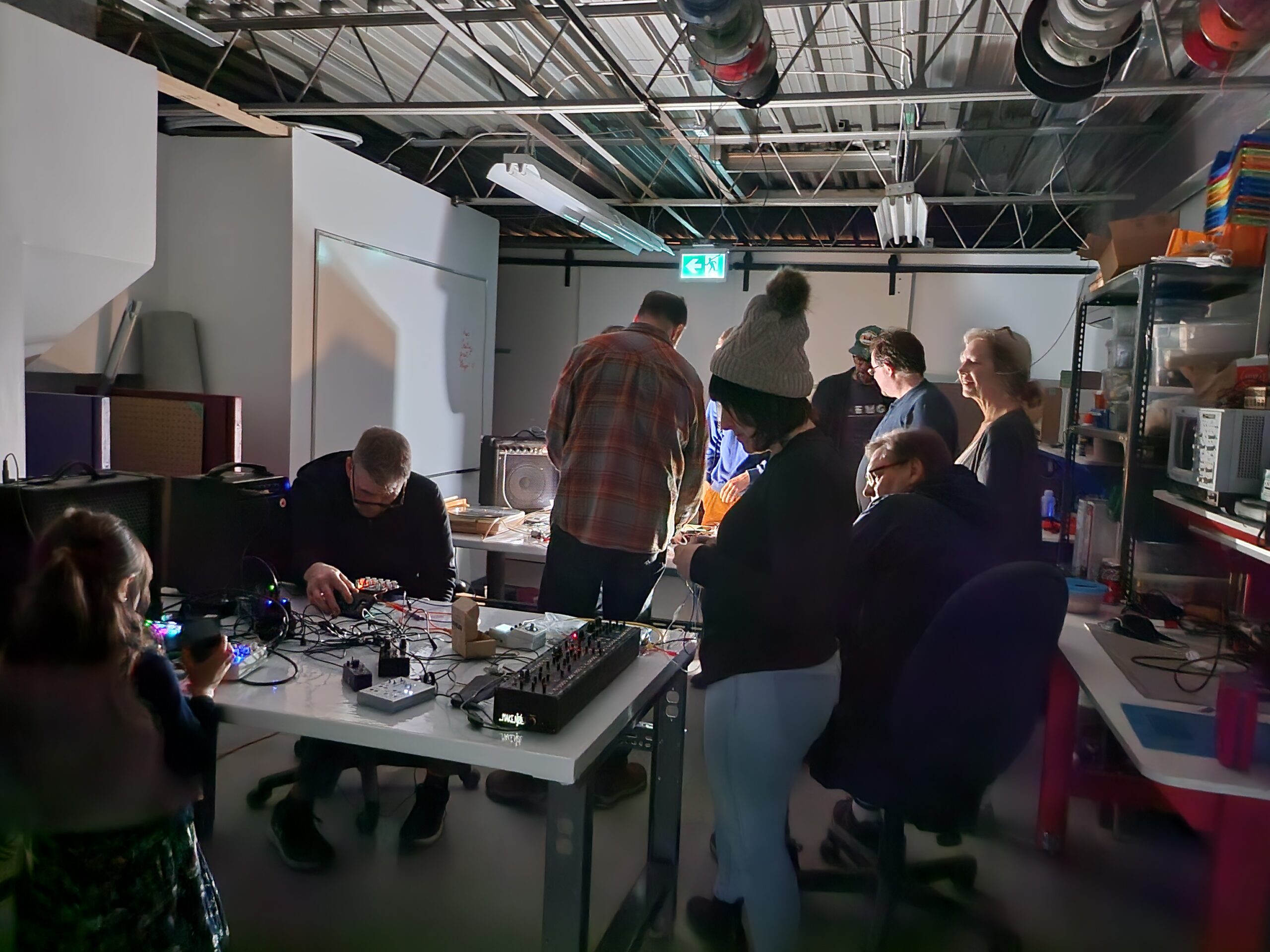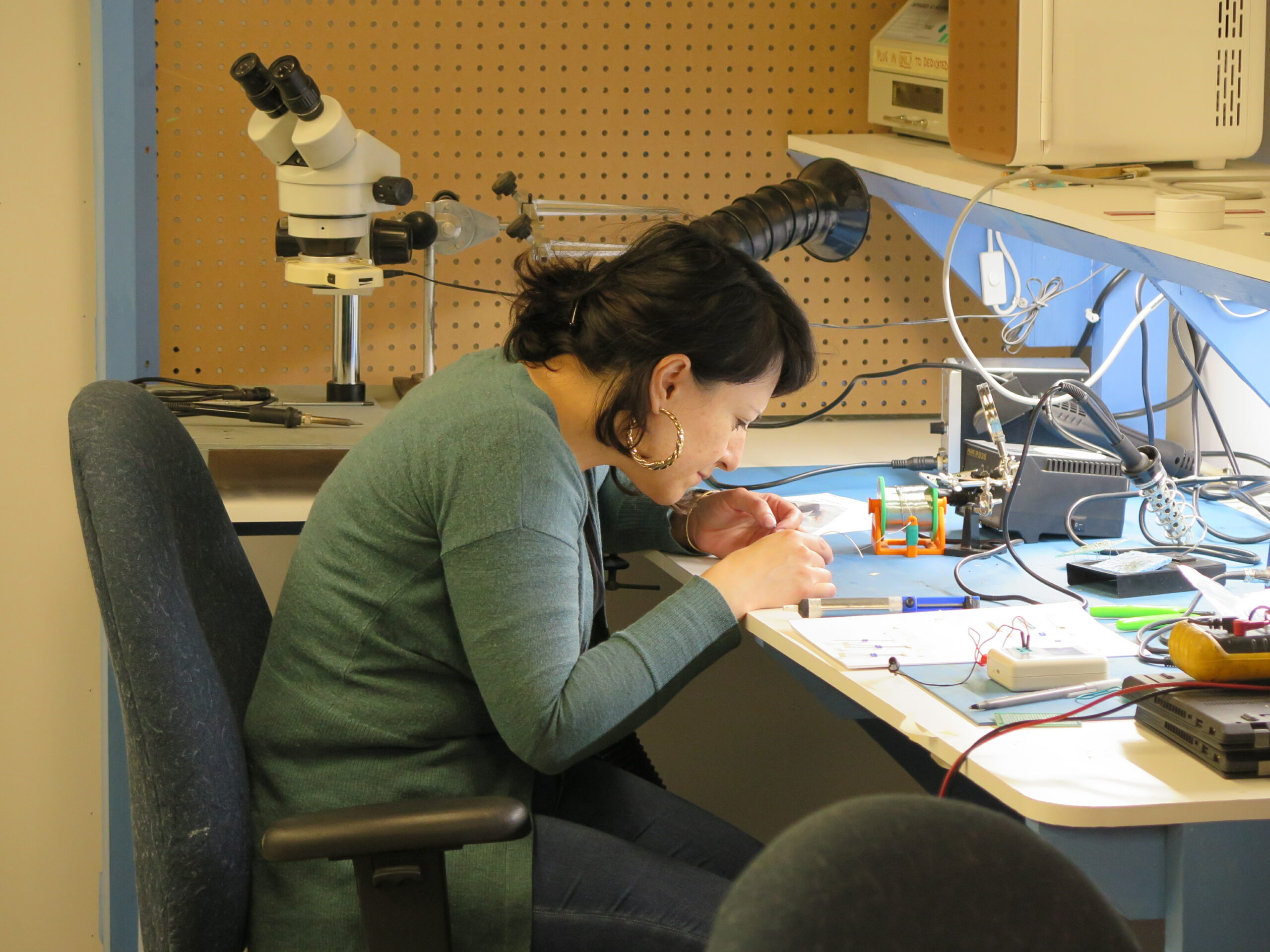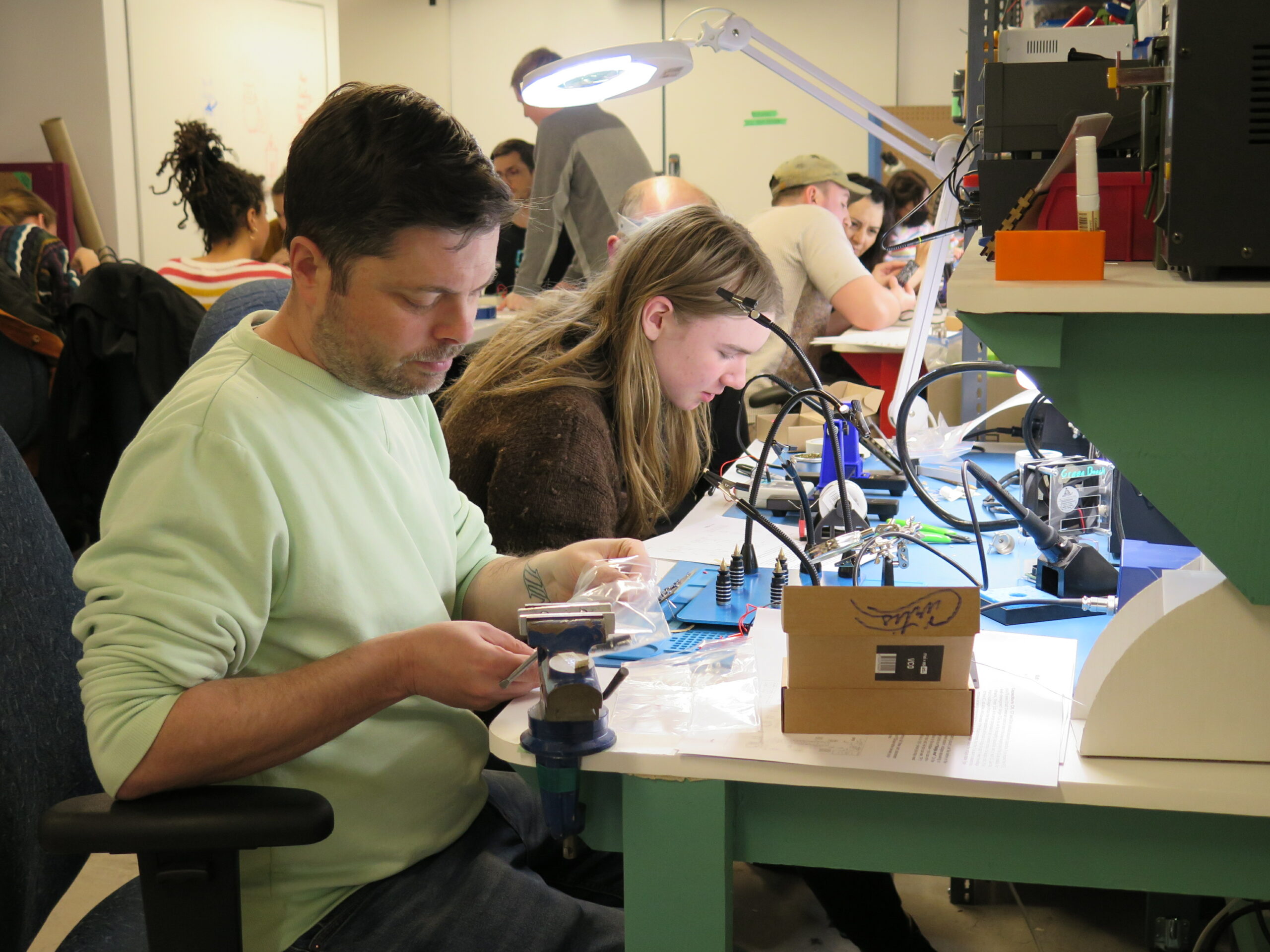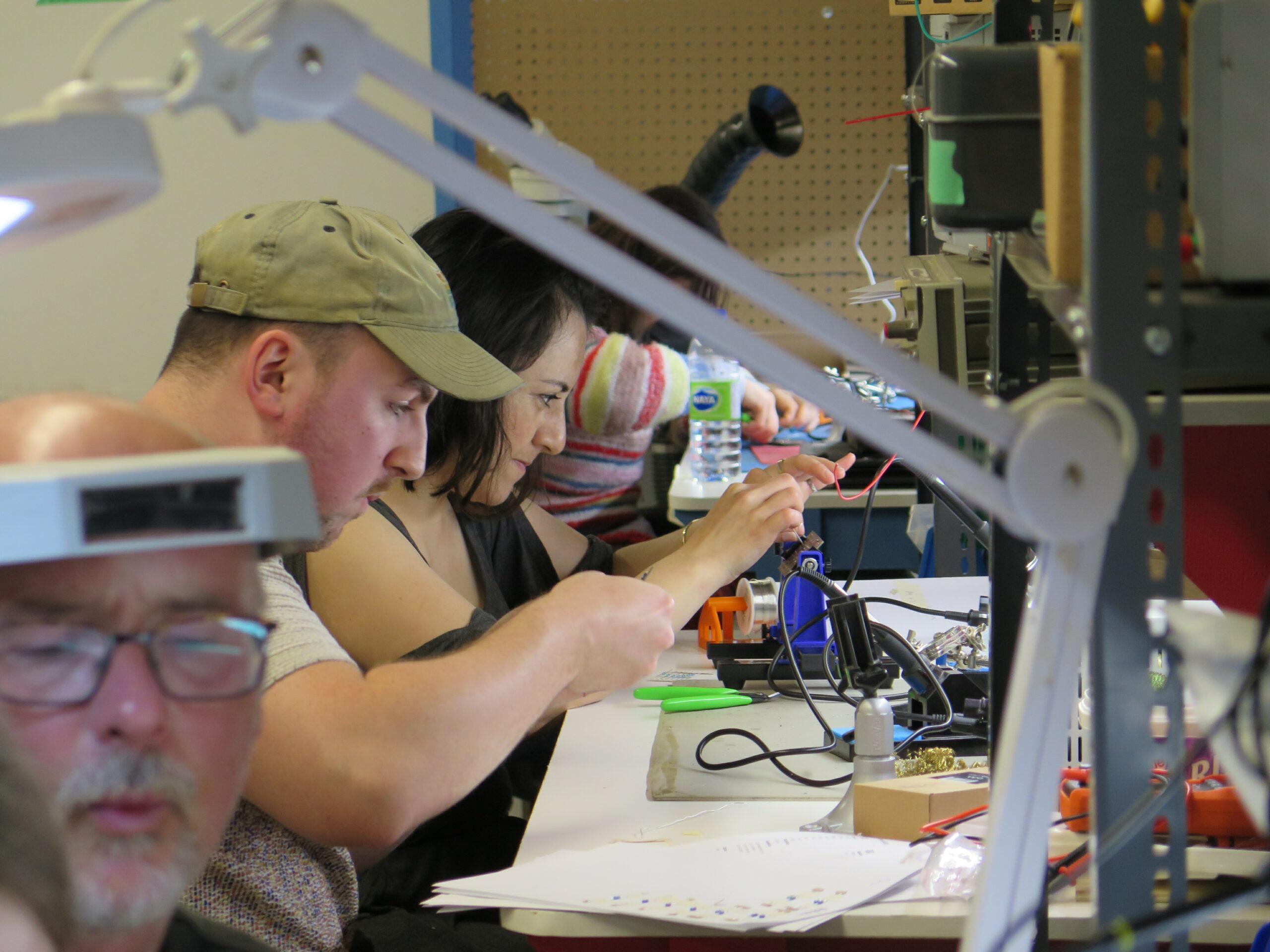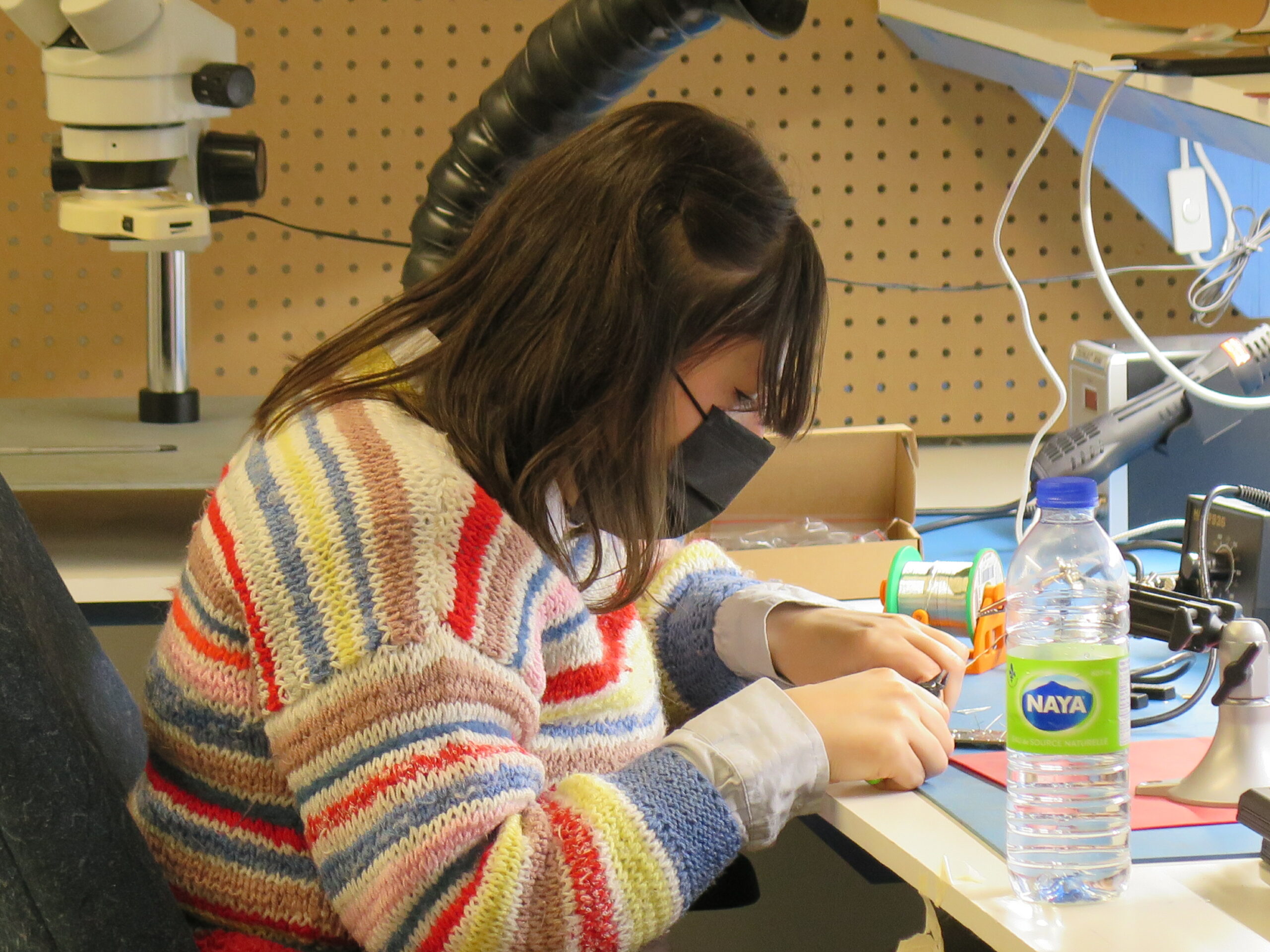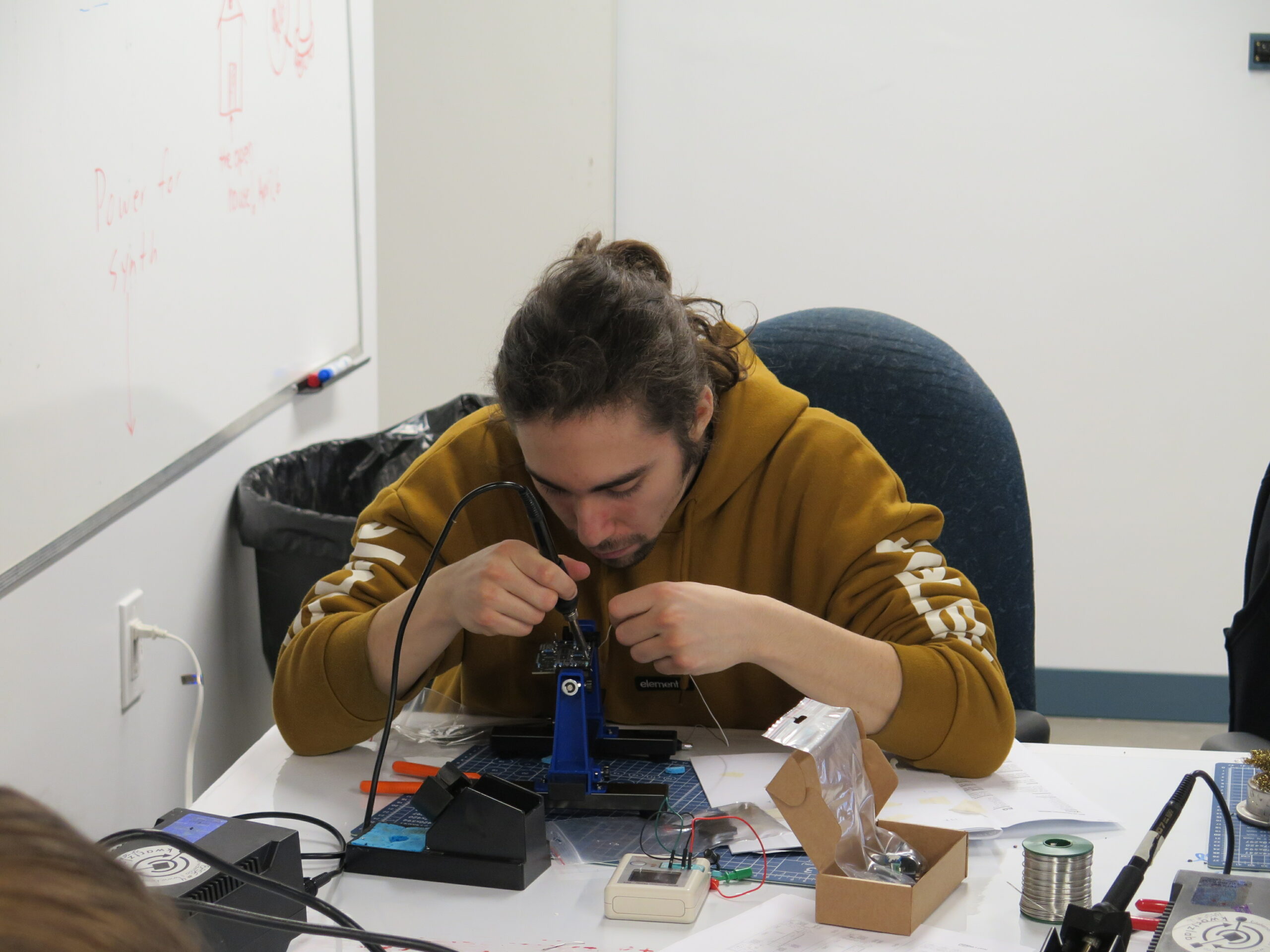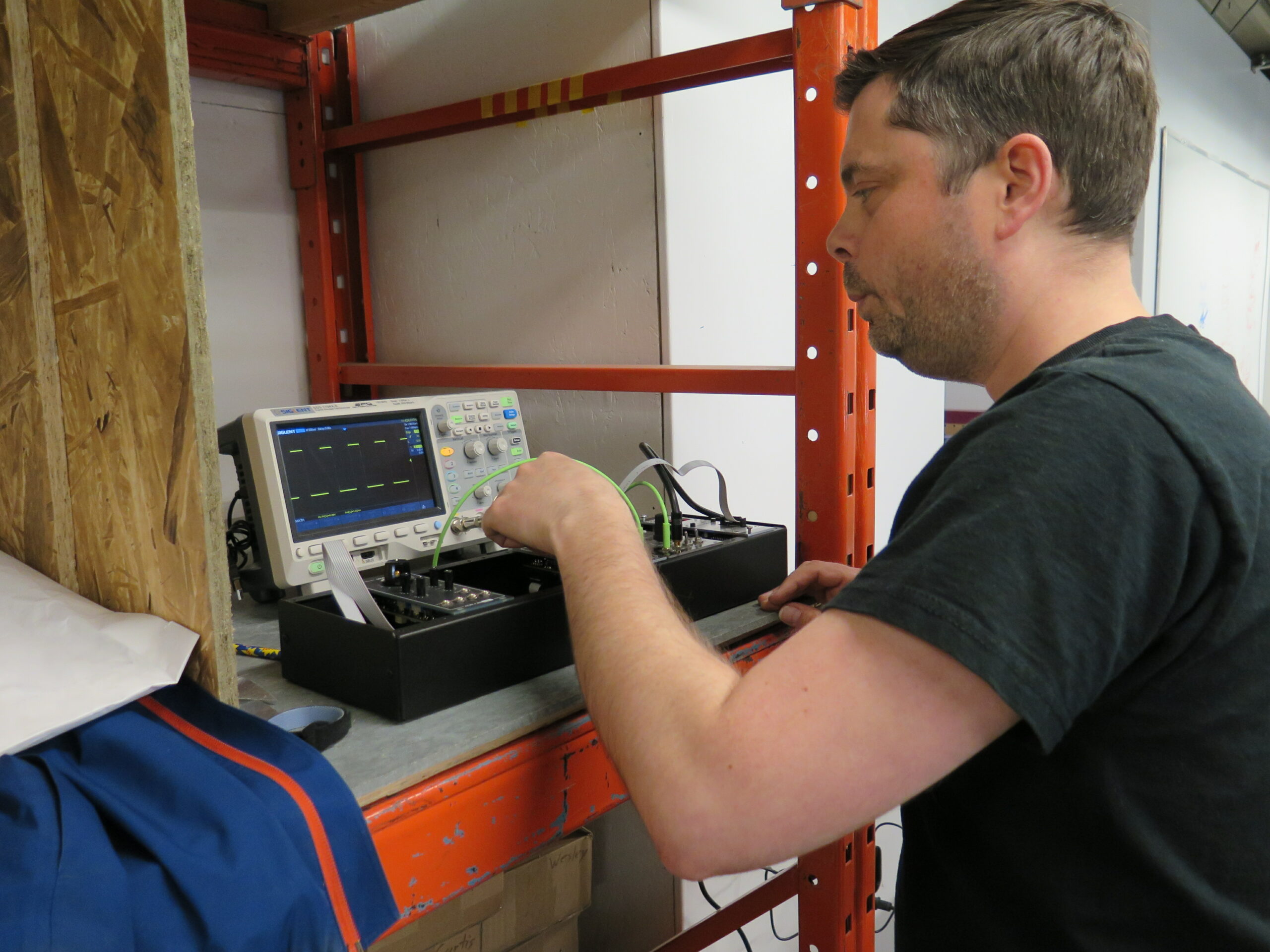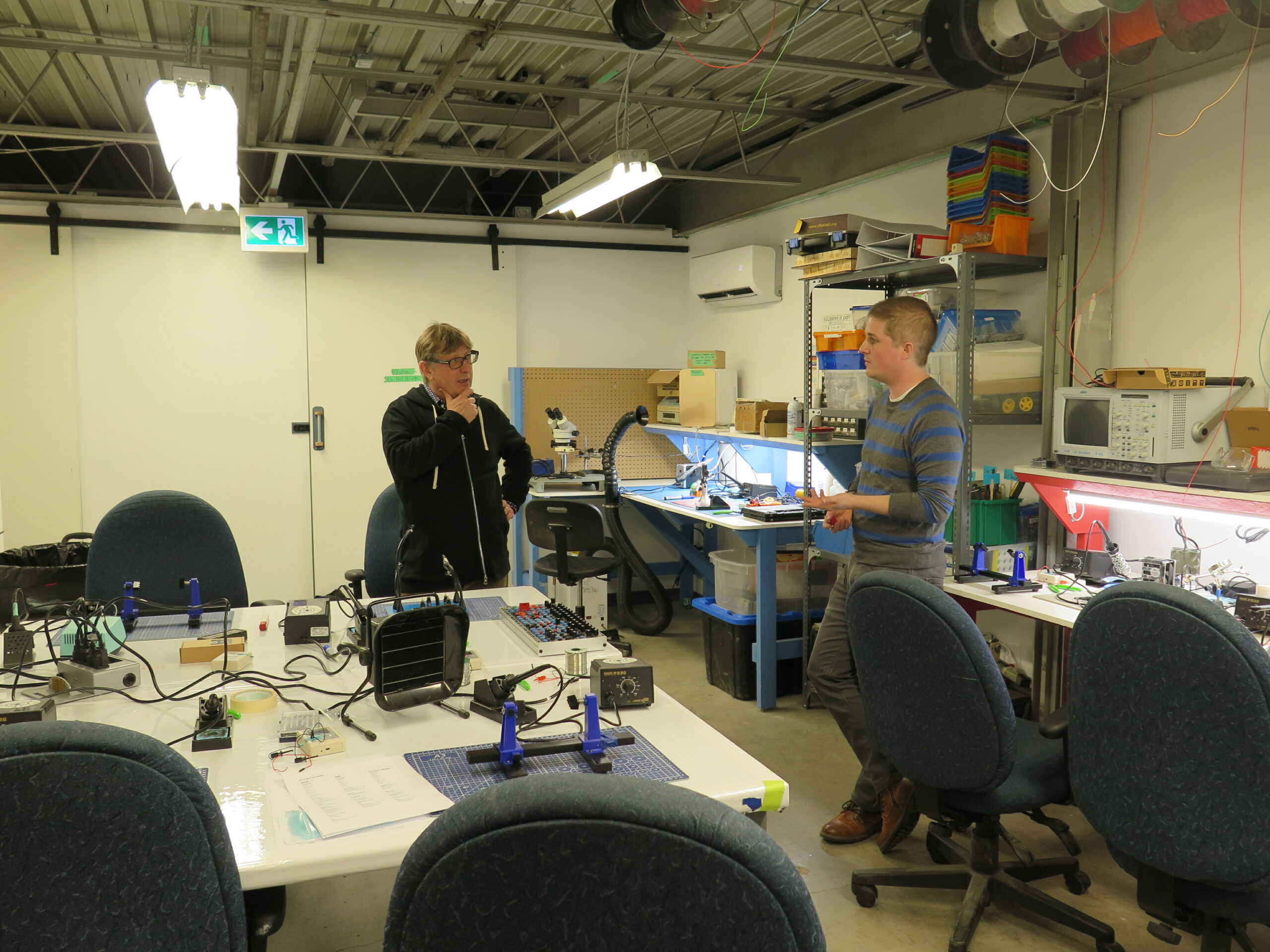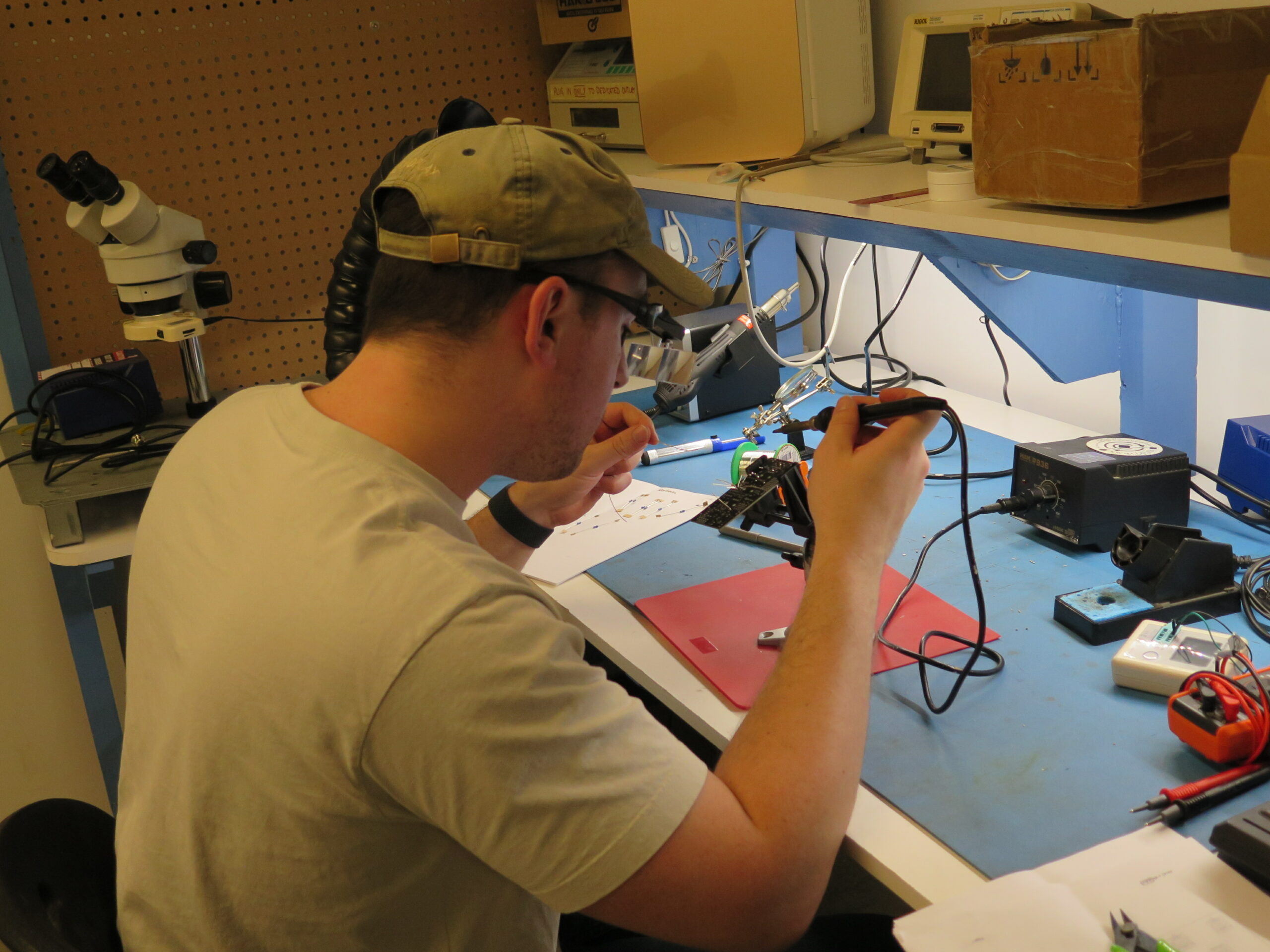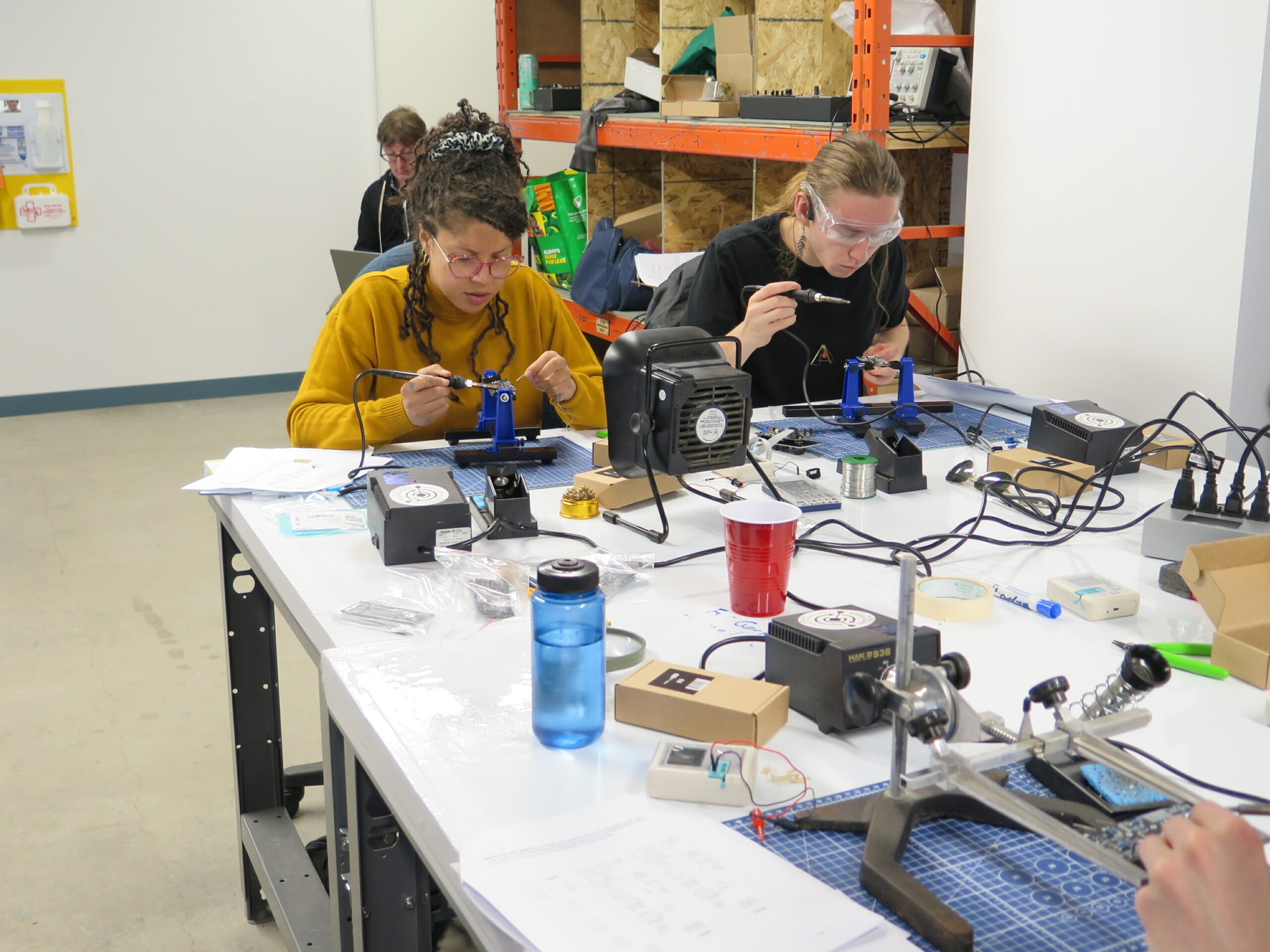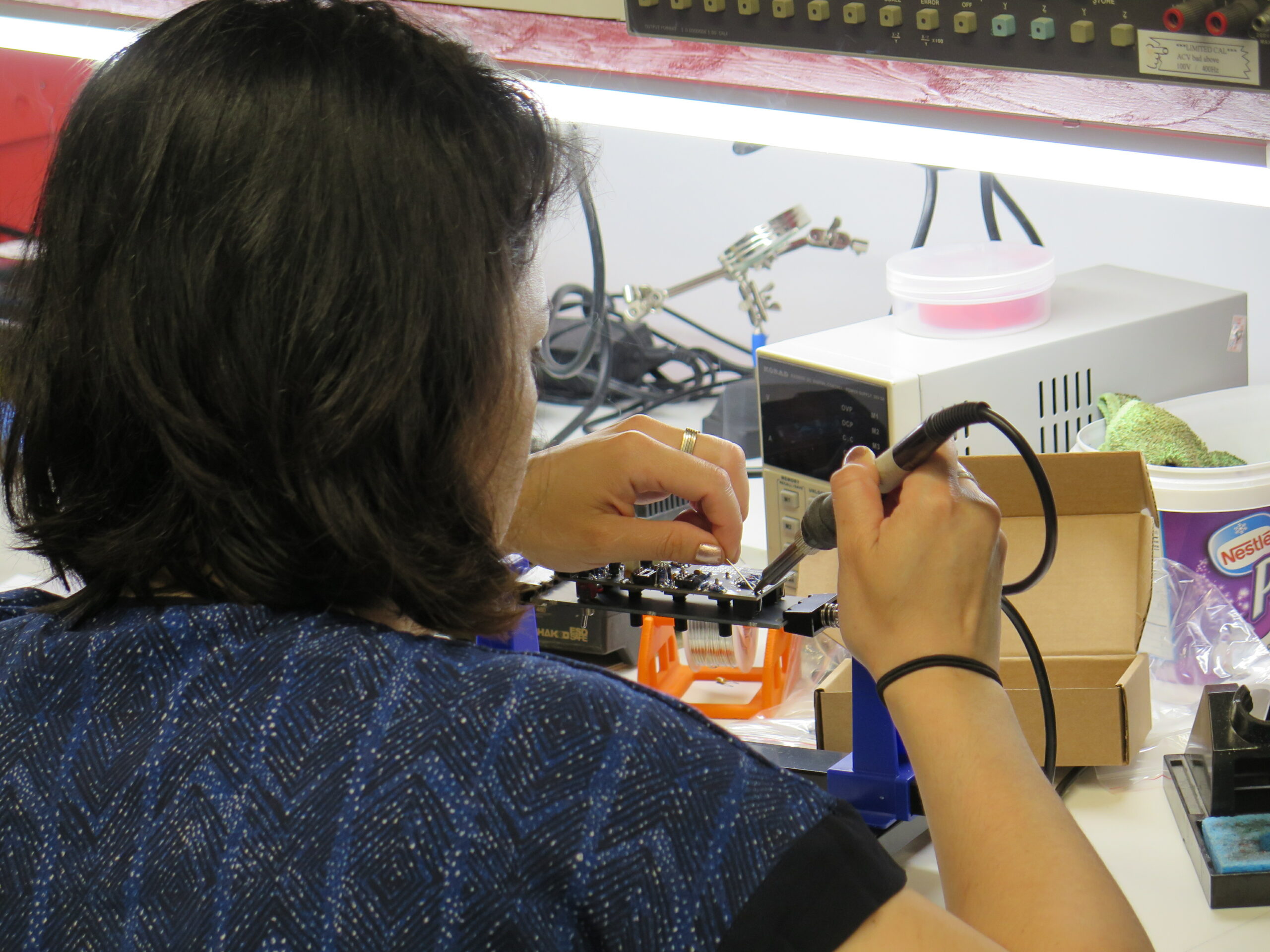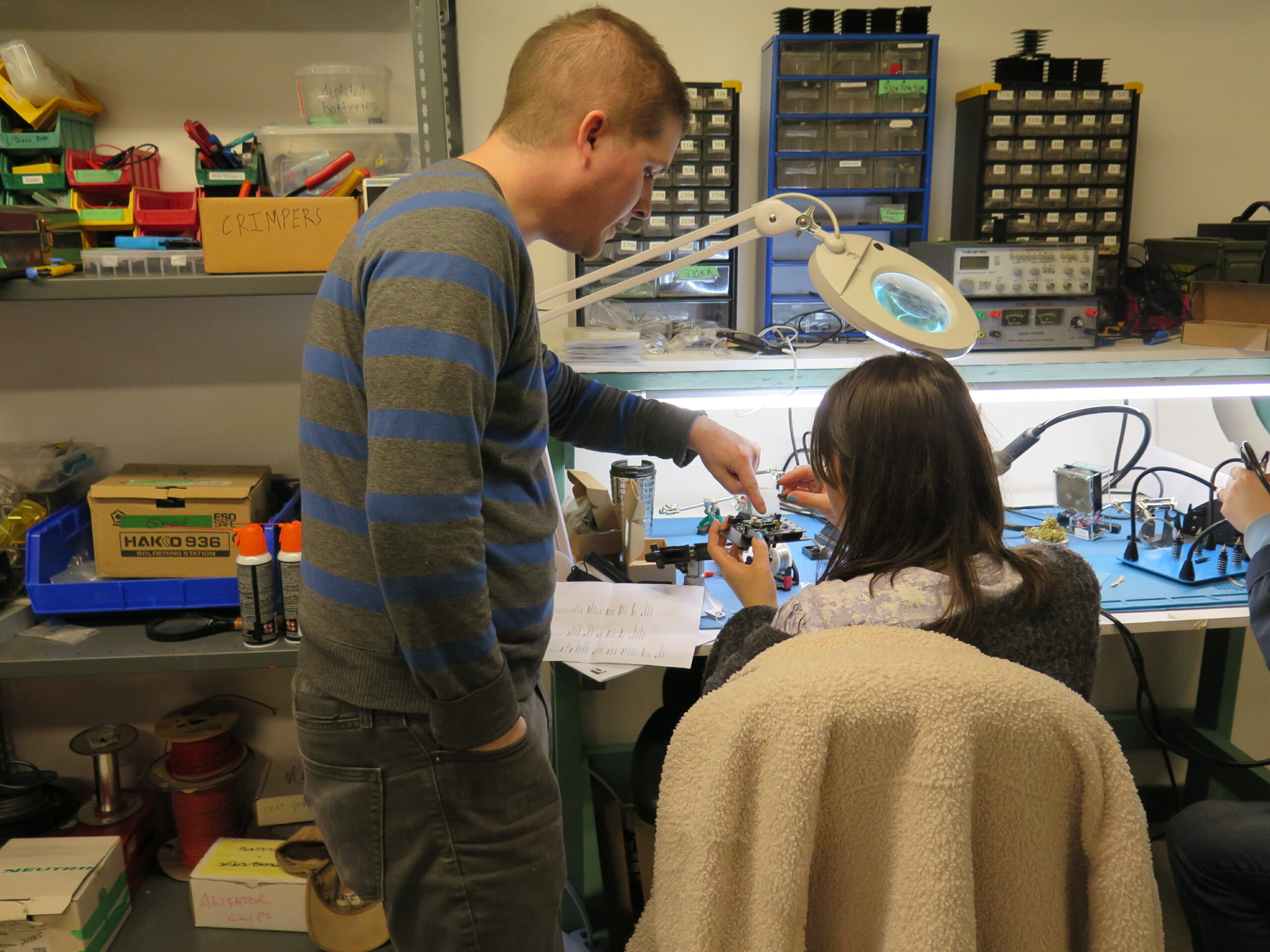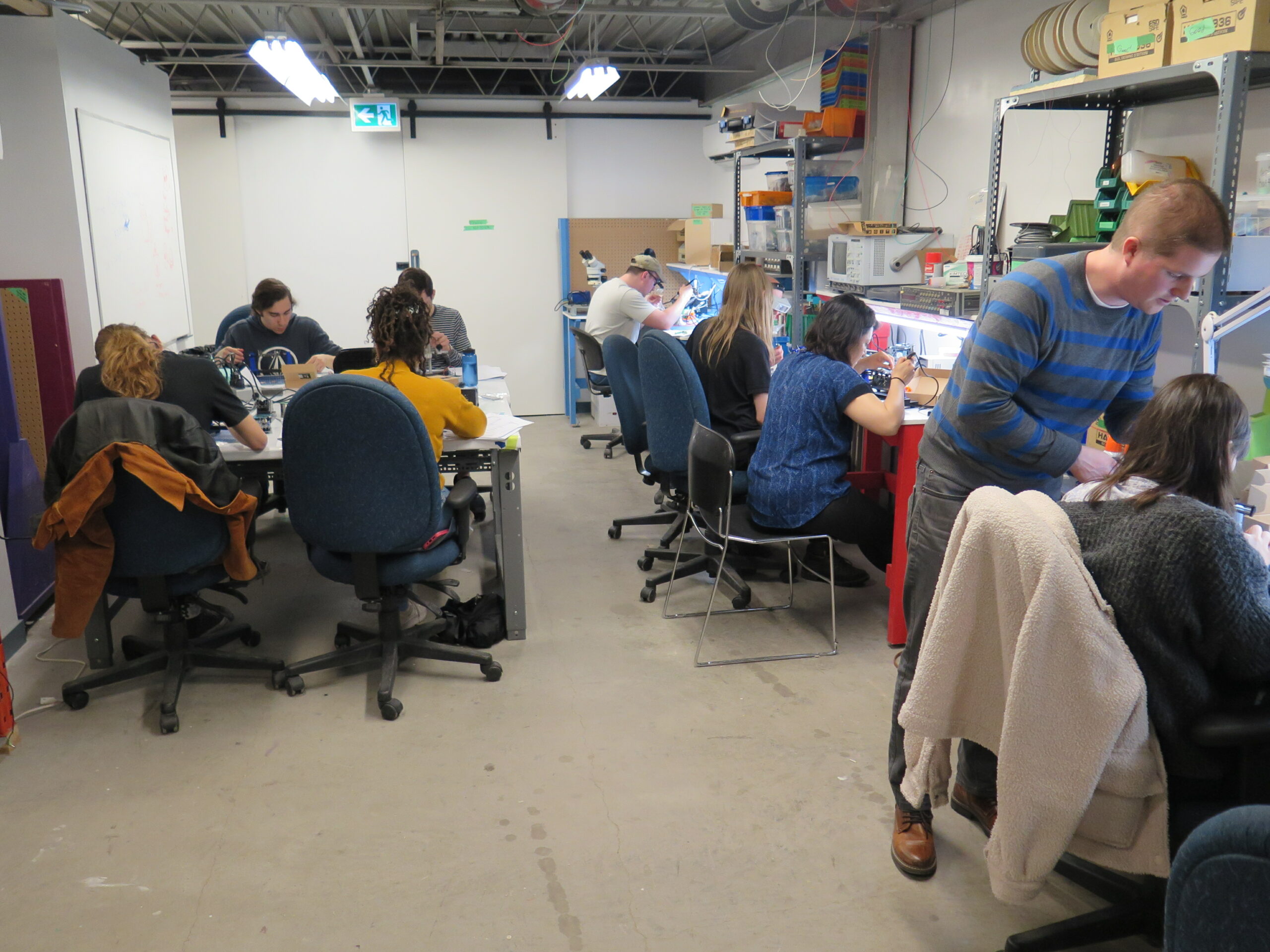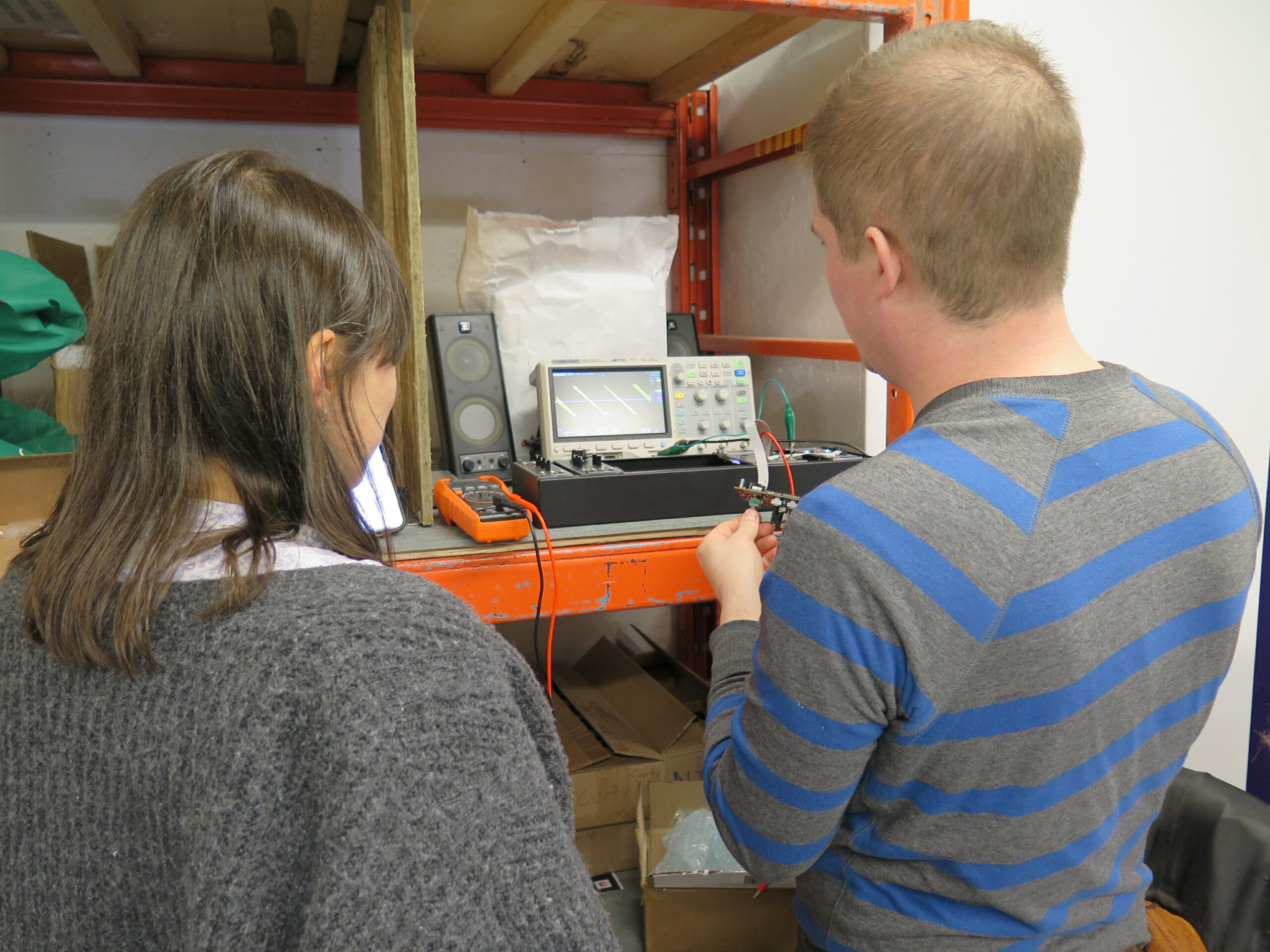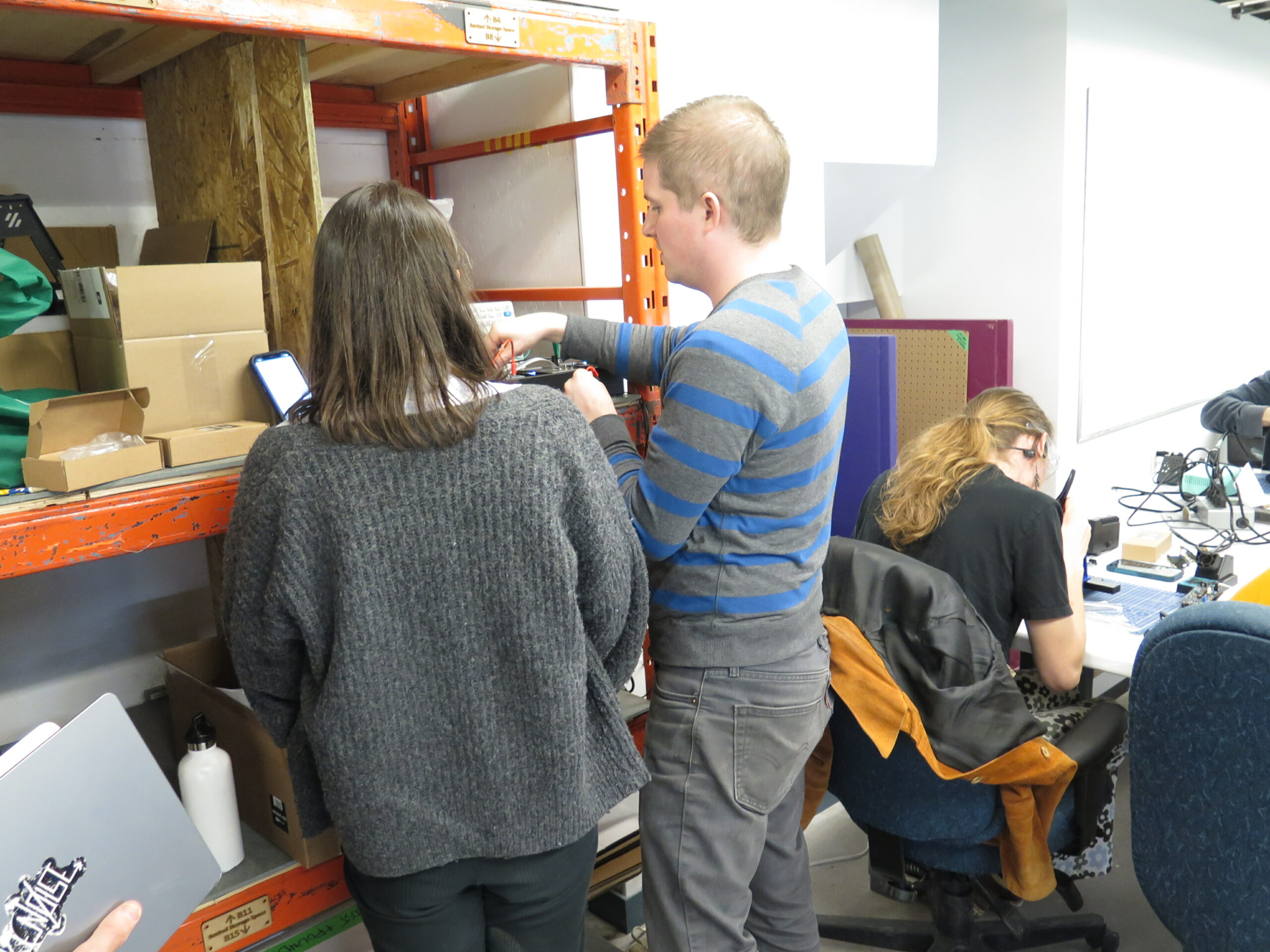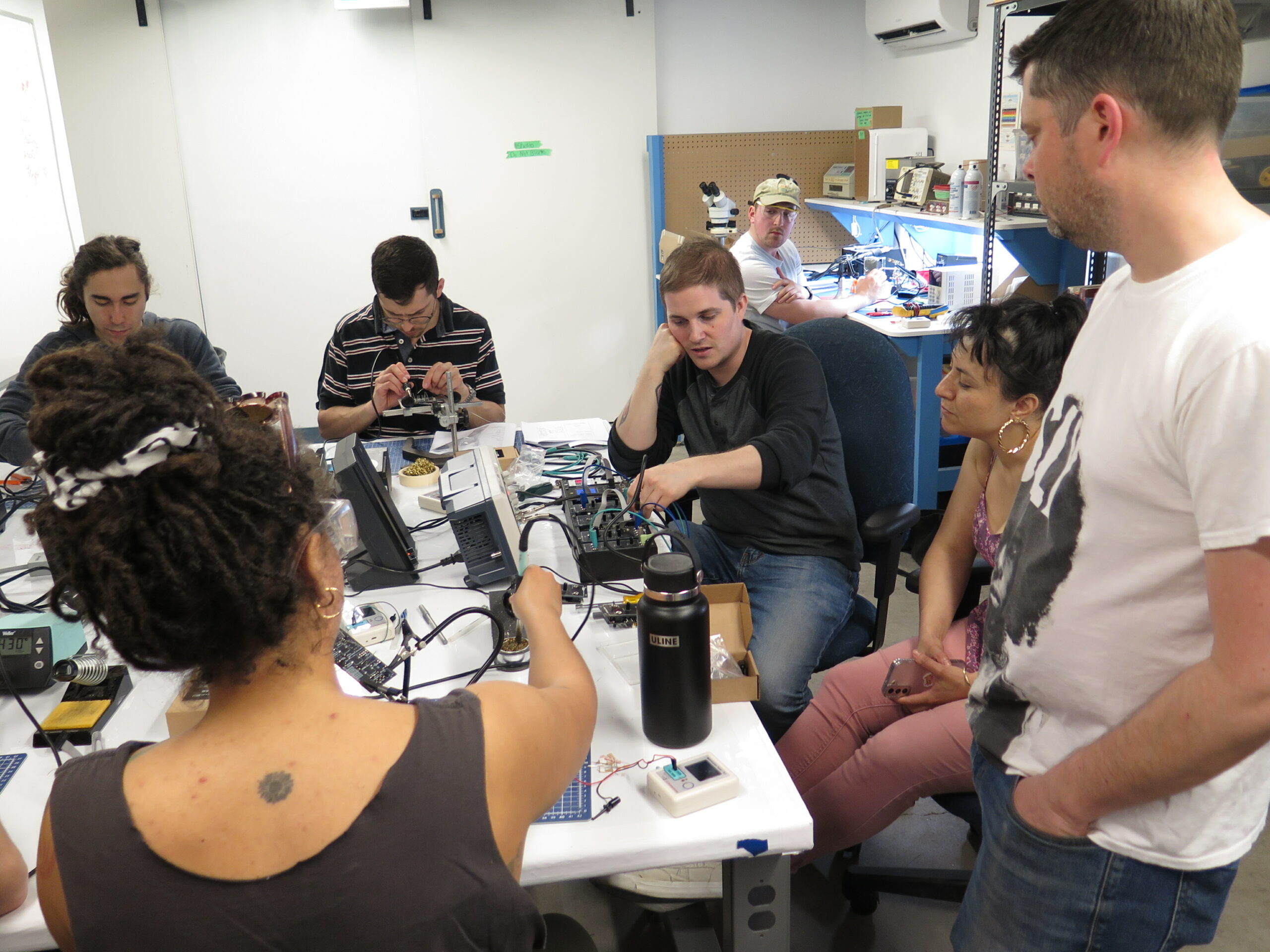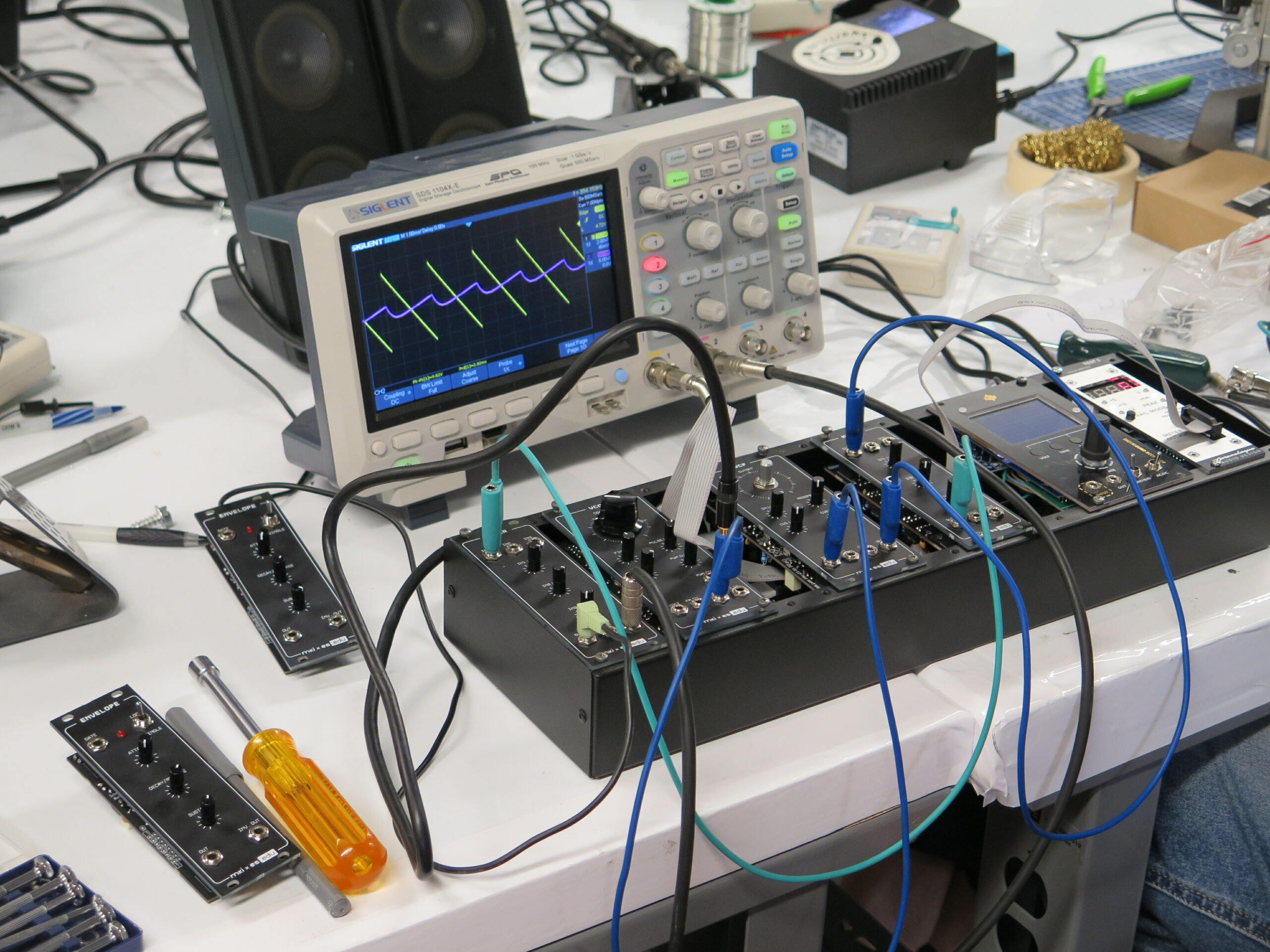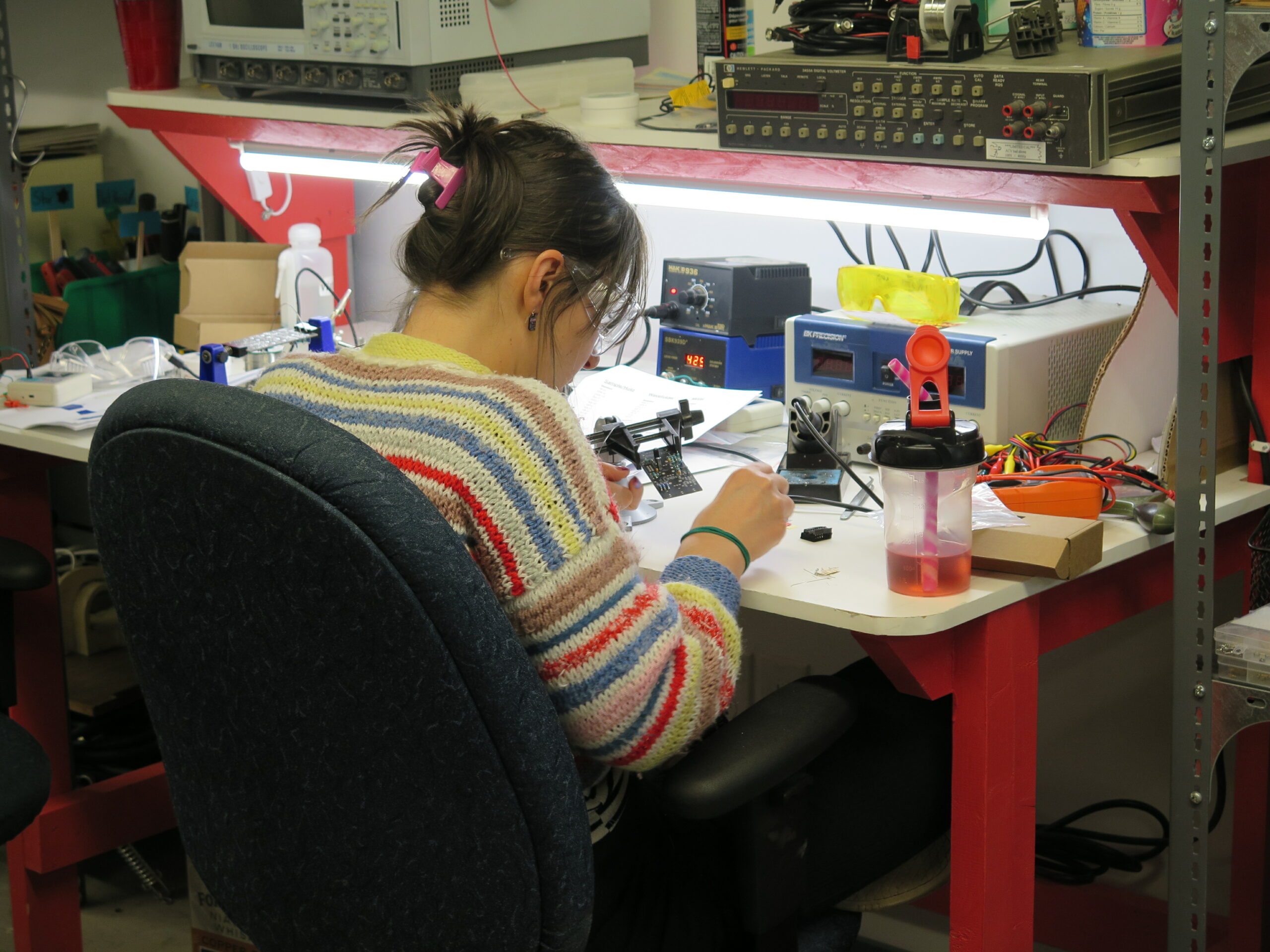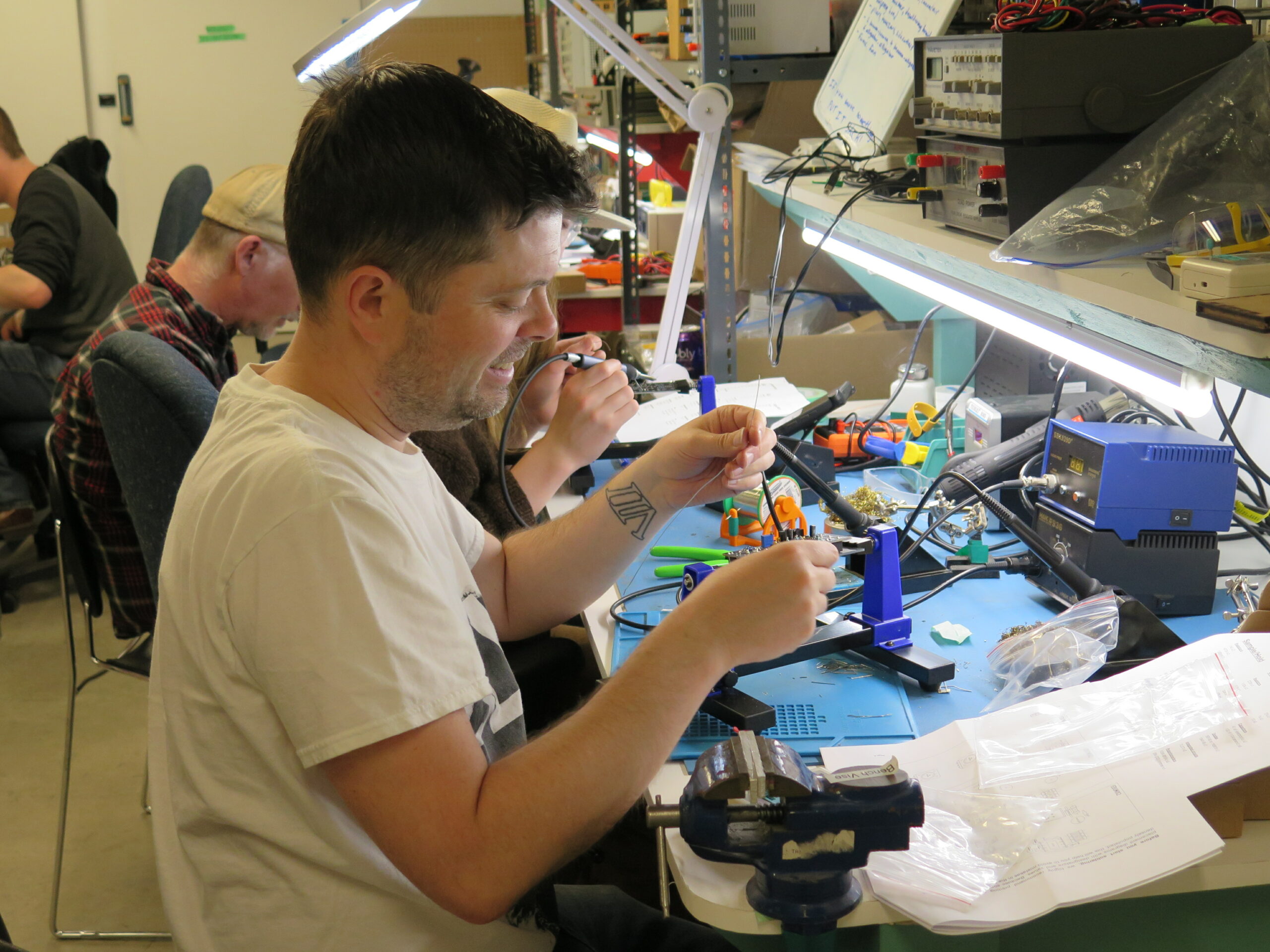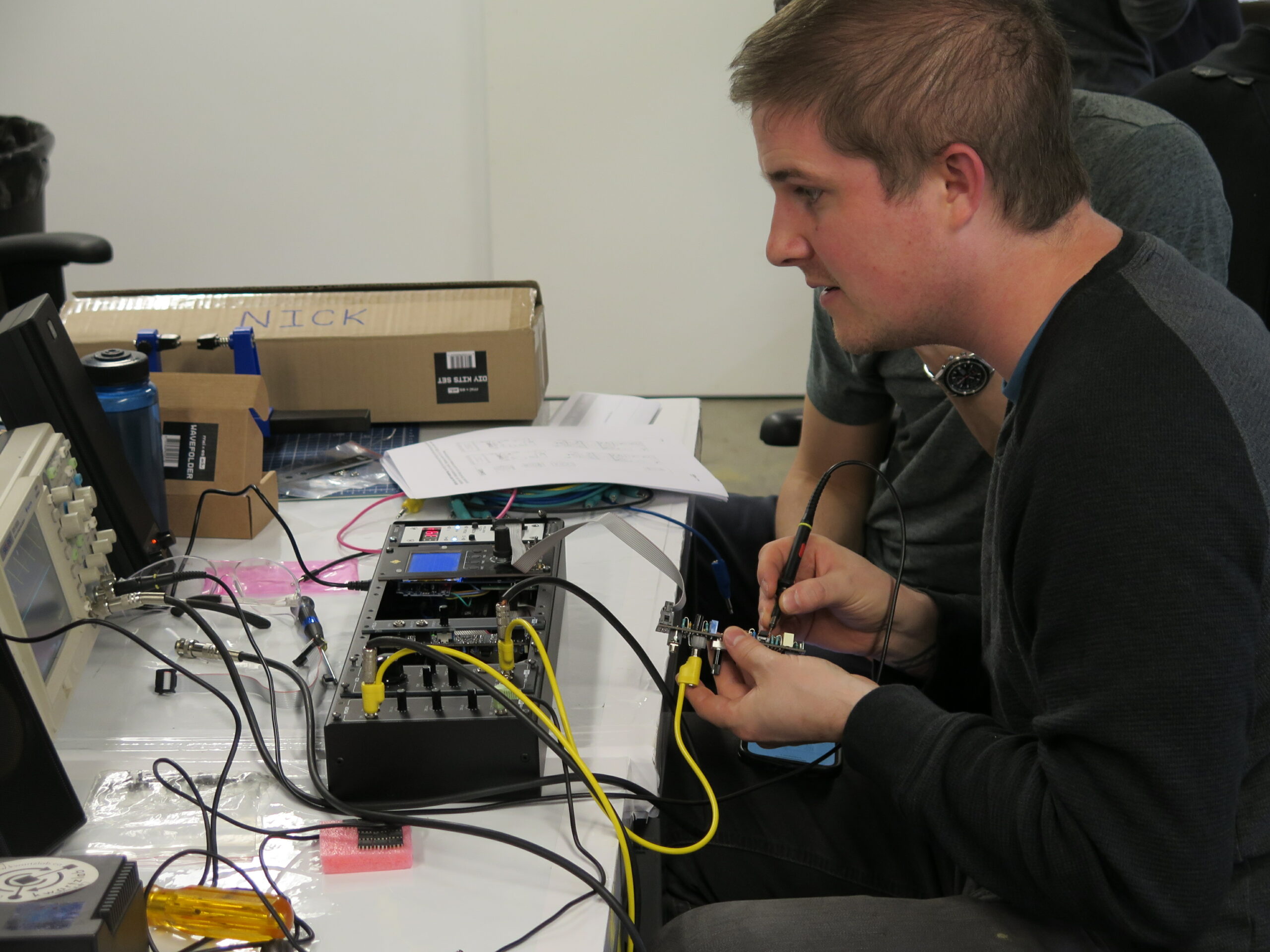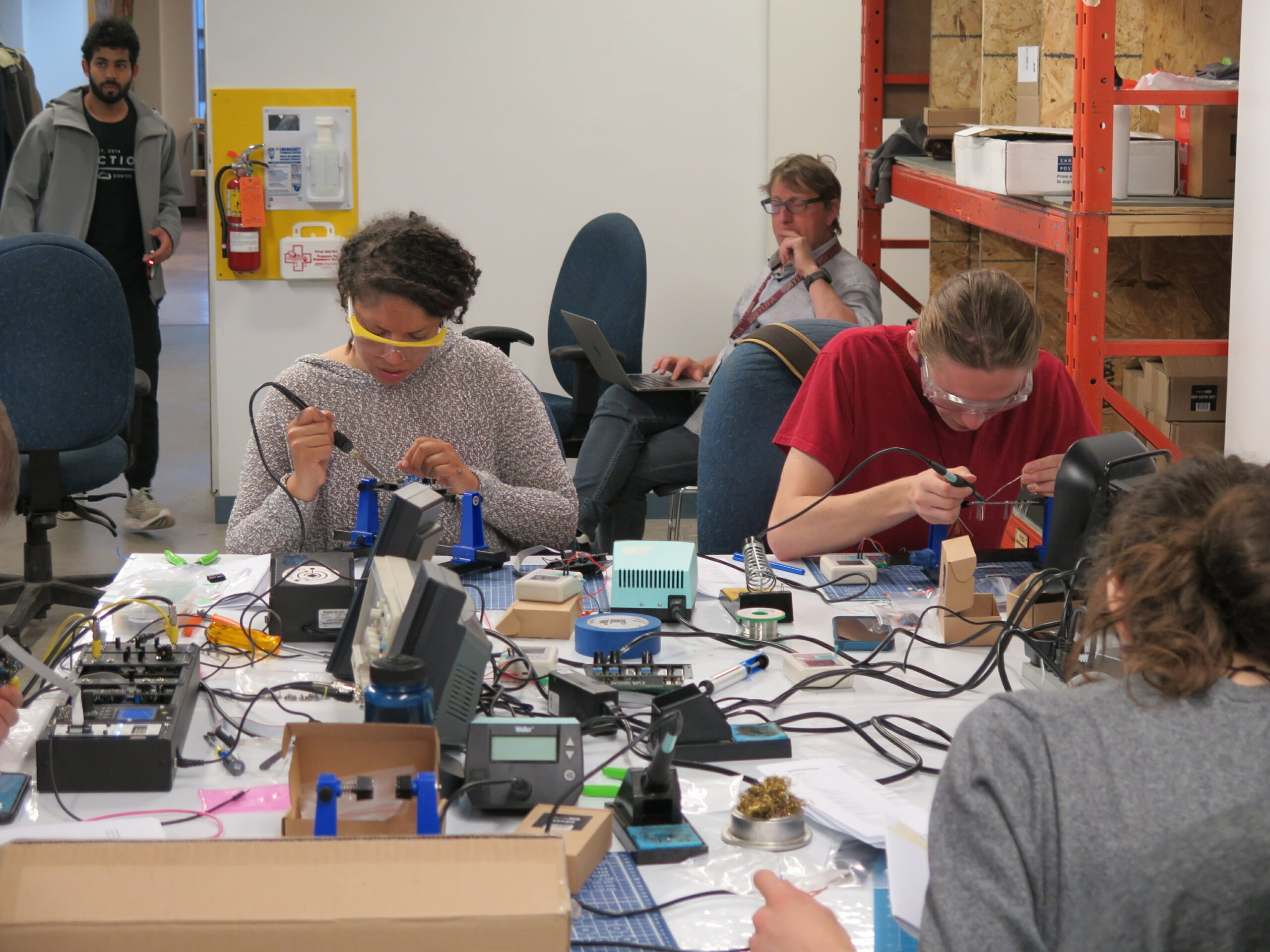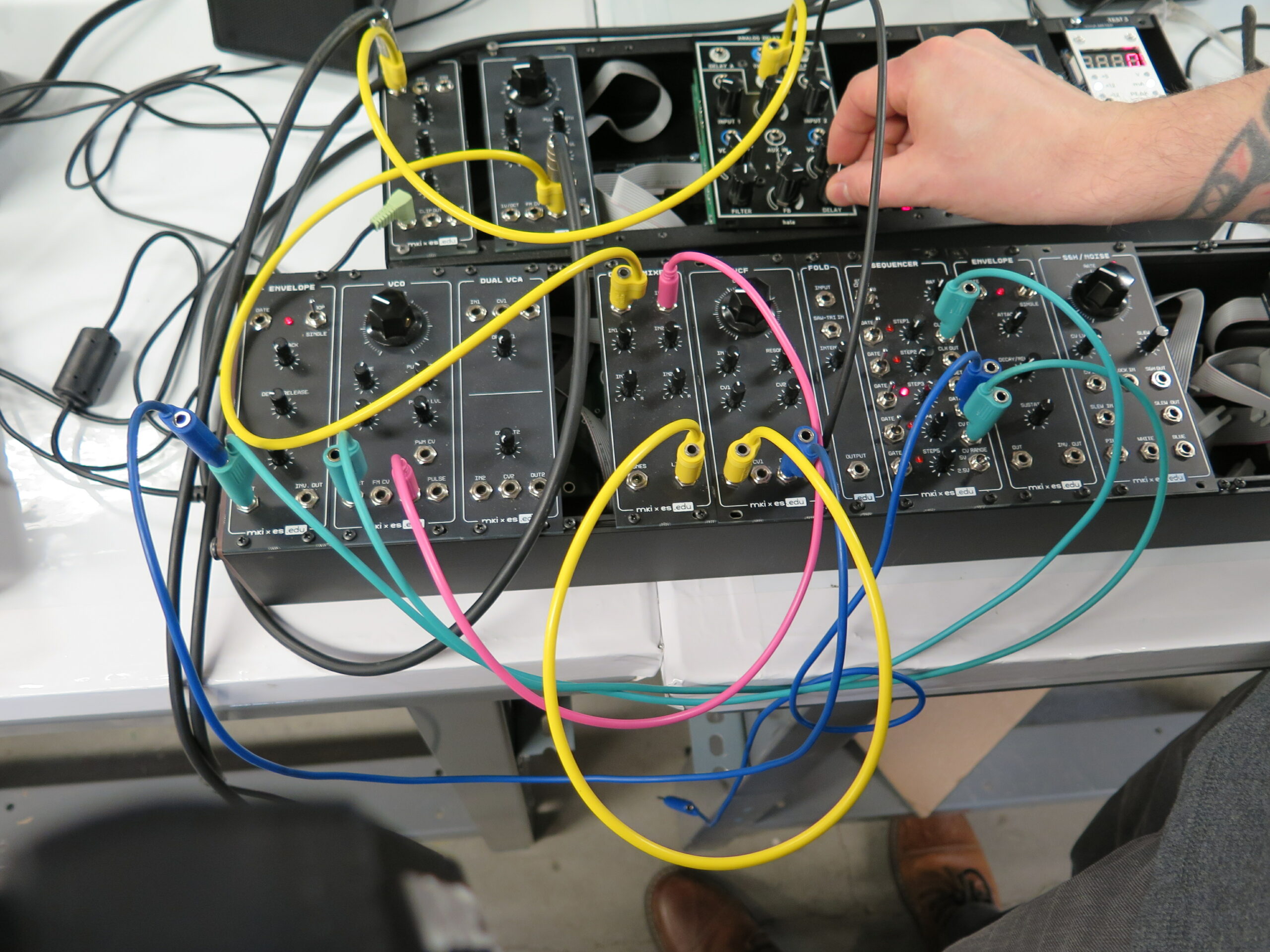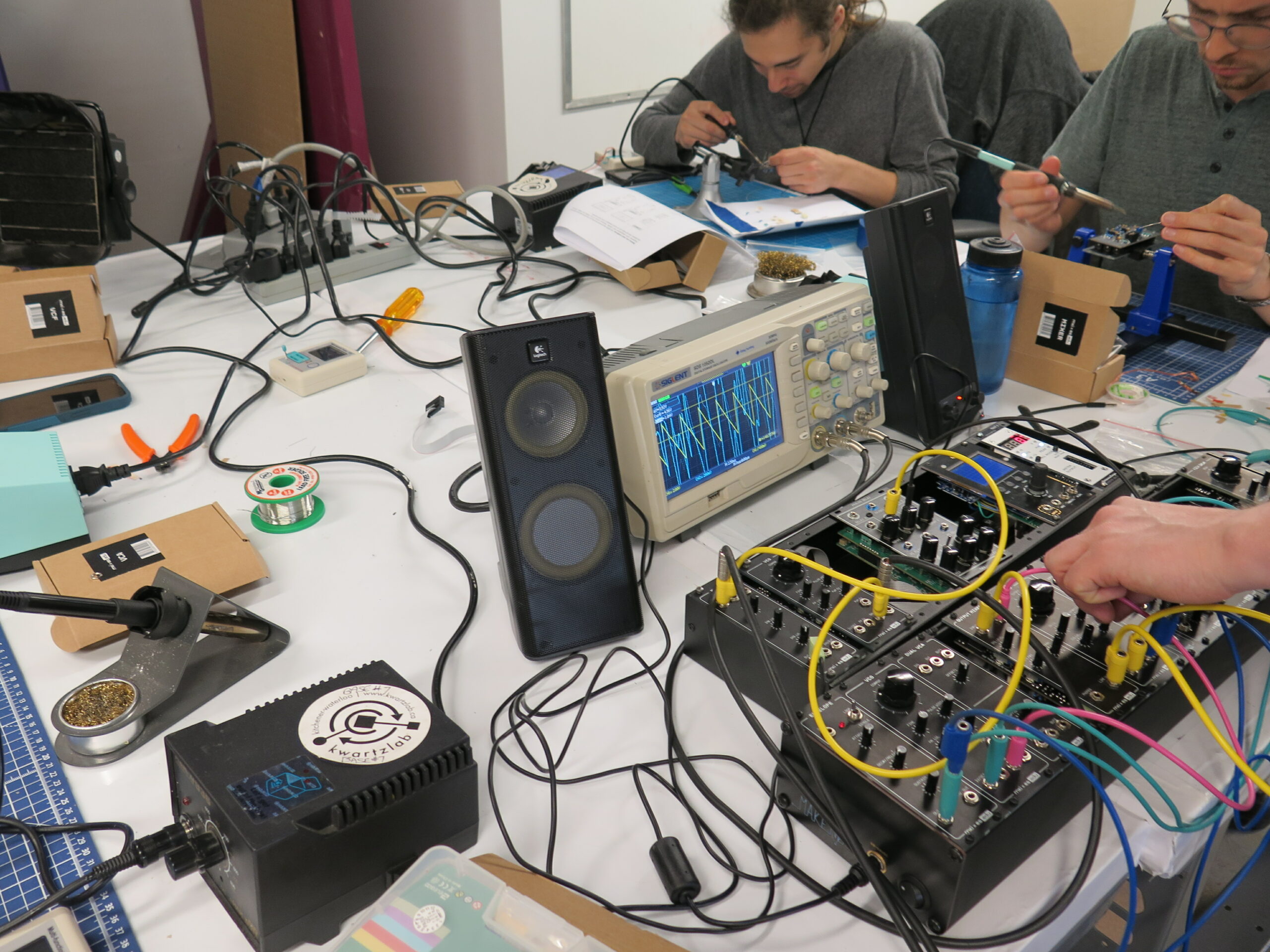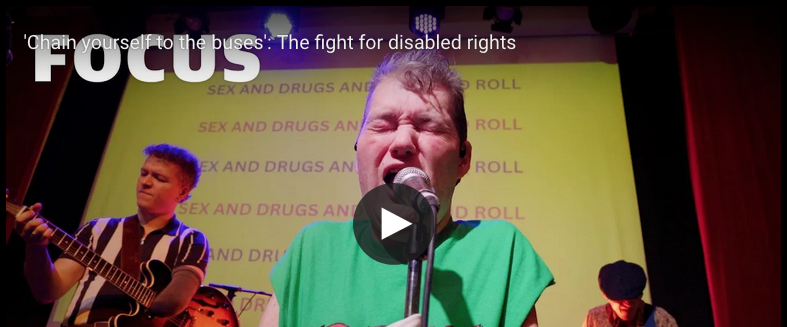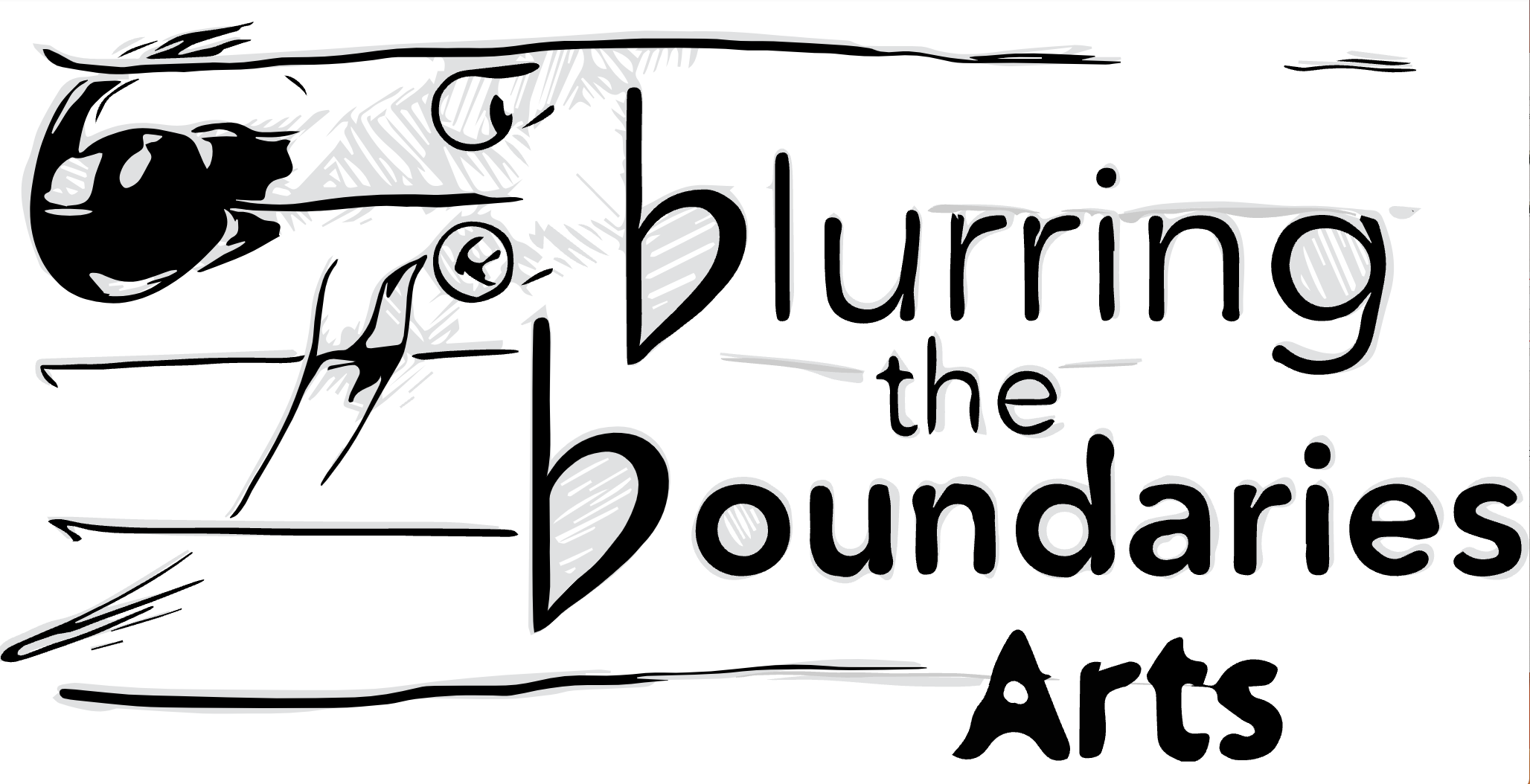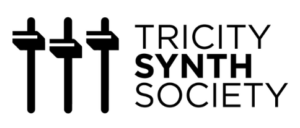The Kwartzlab Modular Makerspace Project (Kitzmann, Thumlert, Melin* and Teboul*), in partnership with Kwartzlab, is a research project that is exploring what and how people learn about the practice of modular synthesis through building and testing their own component systems in a community-driven maker environment. This site-based research workshop spanning 11 weeks benefits from the expertise of synth designer Dakota Melin (hale modular) and the community/partnership-based work of project lead, Andreas Kitzmann.
This work examines the opportunities for transdisciplinary connection-making between the arts, music, and STEM (electronics, fabrication, case design), and if and how novel (transdisciplinary) interests emerge through making.
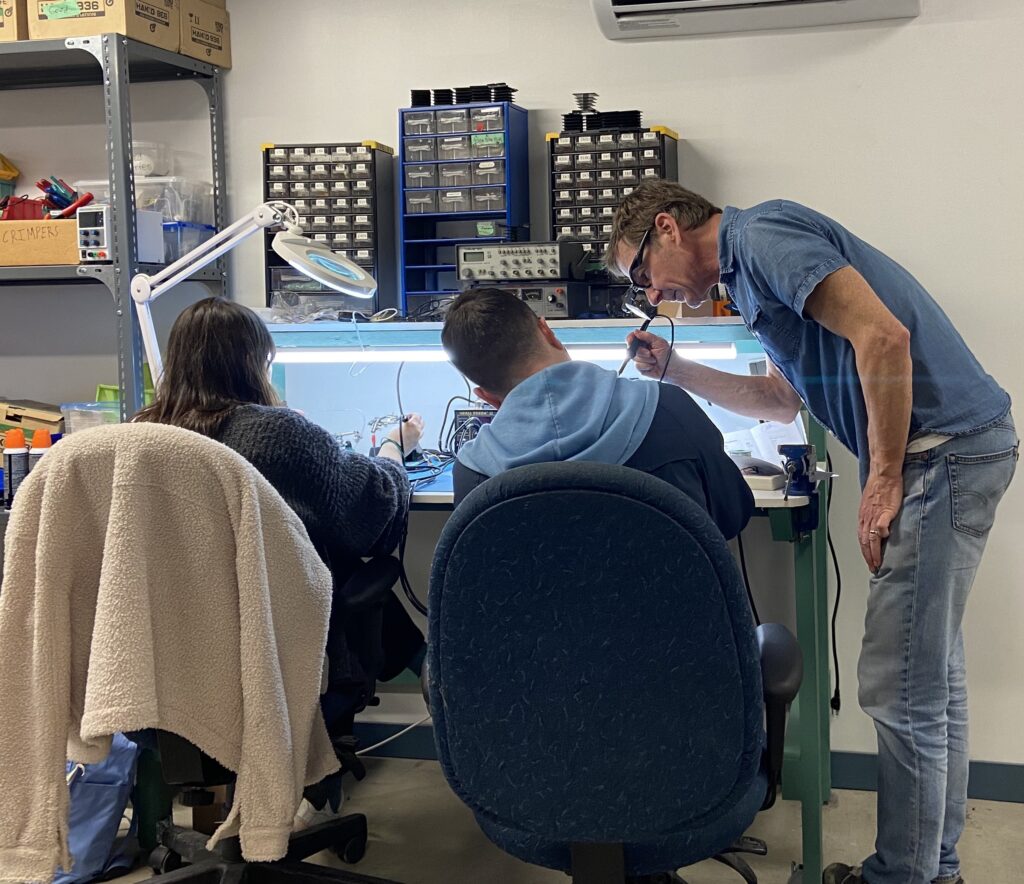
Learning through Making, Testing & Playing Musical Instruments
Making in schools is problematic today as ‘makerspace’ learning has been largely re-compartmentalized for narrow disciplinary and curricular/assessment purposes that attenuate the very energies and opportunities of situated learning and making in authentic environments. When making is turned into a predicted/predictable – hylomorphic – enterprise, the opportunities for genuine inquiry and significant learning quickly dissipate.
Our research objectives will be achieved through integrating ‘production pedagogy’ (Thumlert, 2015) with ‘material centric’ inquiry (Nolan, 2019) in authentic community-based spaces where what is made serves the creative purposes and artistic, scientific, and vocational interests of the participant makers.
Unlike domesticated school-based ‘constructionist’ pedagogies, production pedagogy enables learners to directly engage authentic tools and practical design/artistic challenges through the making of authentic artefacts that matter to the makers, and connect to environments, tools, and performance contexts in the world.
In bringing the tools and practices of synthesis and electronic music instruments to the Kwartzlab, our research questions include:
- What and how do people learn through engaging the practice of building, testing and then using modular synthesizers? What is the role/function of designer/apprentice relationship?
- How does gaining an understanding of electronics and circuit design impact the experience of using creative technologies, such as a modular synthesizer?
- What modes of inquiry and affective relations emerge through exploration, building and compositional making?
- What collaborative practices might materialize through community-based making?
- To what extent do participants experience empowered identities through the process of understanding and making the tools they use for sound and musical expression?
- If, how and to what extent do transdisciplinary interests emerge through the process of making (i.e., do participants interested in music develop interests in electronics (STEM); and do participants interested in electronics/STEM develop interests in music and sound)?
We are also looking at the contingencies and challenges of authentic making where learning processes are interrupted (and enriched) by questions, material challenges and technical ‘failures’, and how communities work together with project leads to negotiate the kinds of authentic obstacles that are excluded from pre-packaged maker ‘kits’ and commoditized K-12 ‘maker curriculum’ where outcomes are known in advanced.
